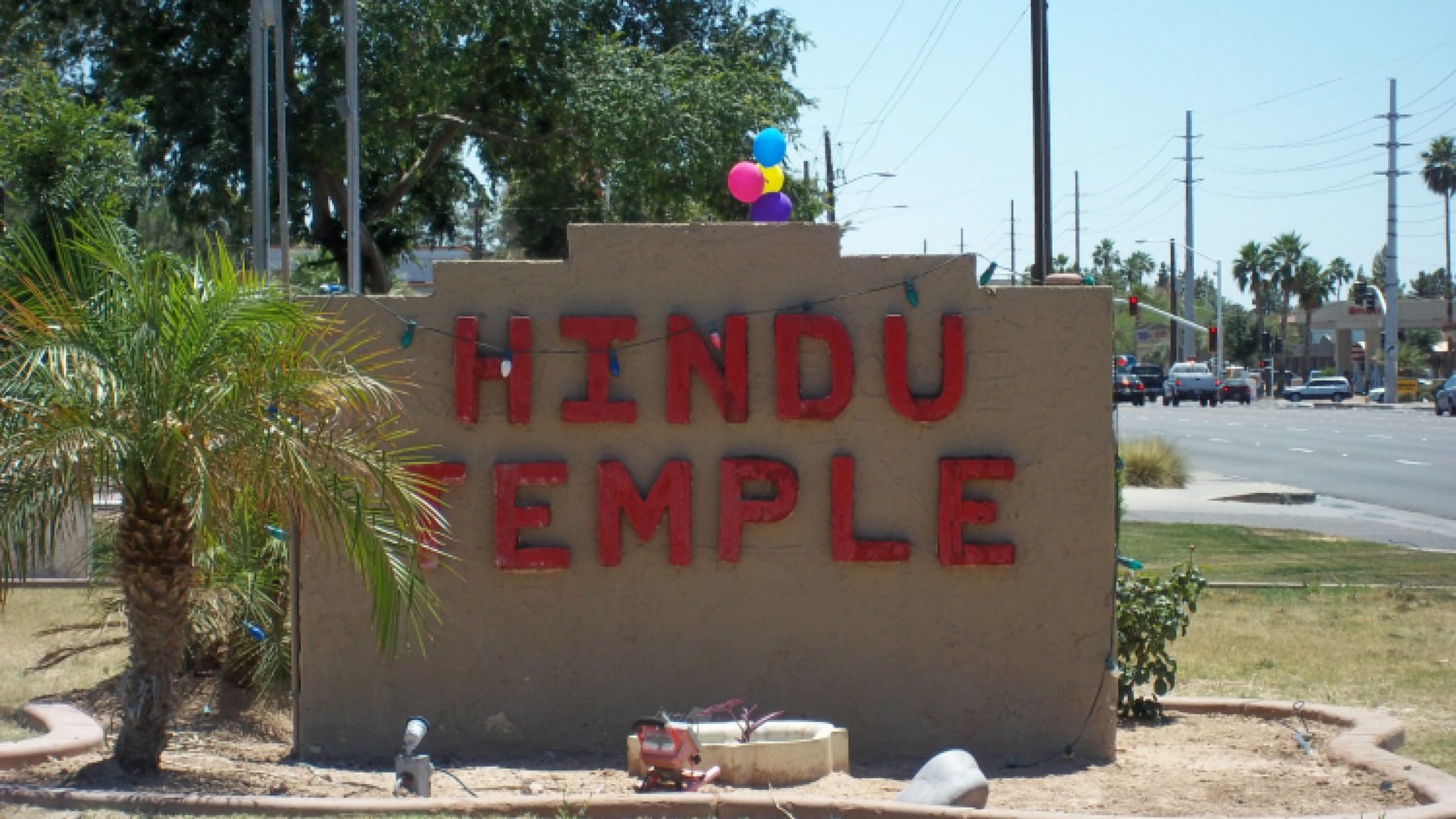Hinduism Is Arizona’s Second-largest Religion
By Jen Lebron Kuhney | Jul 25, 2014

he converted church sits in a quiet Tempe neighborhood just off U.S. 60.
The outside looks much like any church, but inside is an enormous statue of Vishnu and the lesser gods and goddesses of the Hindu faith.
Four Hindu priests live in or near the the Sri Venkata Krishna Kshetra temple and provide religious guidance to the Hindu population in metro Phoenix.
Hinduism is the second-largest practiced religion, after Christianity, in Arizona, according to the U.S. Religious Congregations & Membership Study from 2010. The study showed there are nearly 33,000 people who belong to the approximately 35 Hindu congregations throughout the state.
Comparatively, there are almost 2.3 million practicing Christians throughout Arizona.
Christianity in this study is used as an umbrella term for the variety of denominations that include Catholics of all varieties, Mormons and all the sects of Protestantism.
The study only took a count of people who are members of a church or organized body within a faith, so some people who might consider themselves to be of a certain religion were not counted if they do not attend services regularly.
Dale Jones, data analyst for the study, said one factor in Hinduism showing up as the second-largest practiced religion is that technology has made it easier to reach out to various congregations.
“This was really the first time we could get an accurate account of Hindus and Buddhists,” he said.
The study is the most complete data available on U.S. religious affiliation. It is a county-by-county enumeration of religious bodies in the United States and is conducted every 10 years at the same time as the U.S. census.
The Hindu population is relatively small in Arizona, but is growing as more Indians immigrate to the state for jobs in medical, technology and engineering fields, said Caleb Simmons, an associate professor of religious studies at the University of Arizona.
“It’s important with a group like Indian-Americans, who are such a small minority, that when they immigrate they can be together with other South Asians,” he said. “The temples are cultural centers as well as places for people to worship.”














